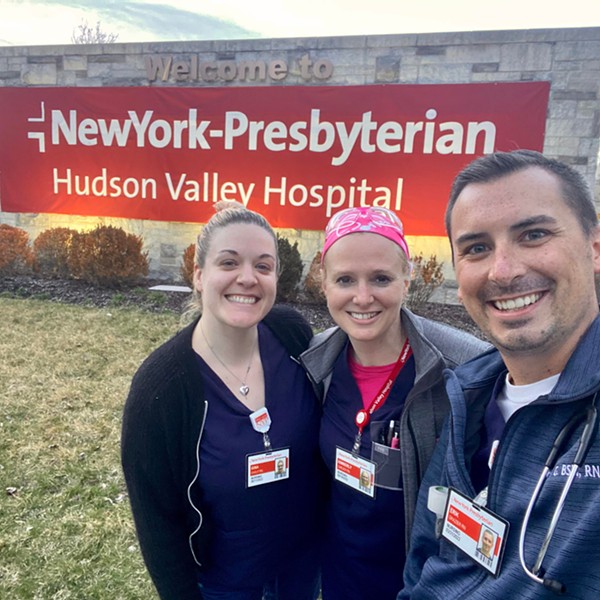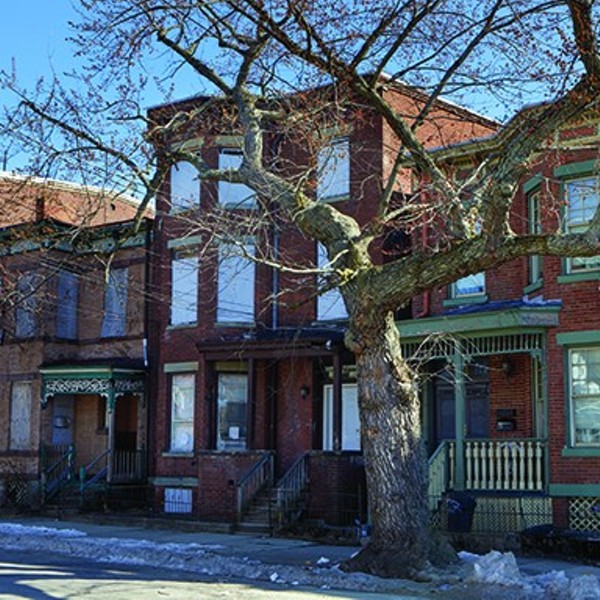Lissa Harris here. The team at The River has brought me in to cover coronavirus news in the Hudson Valley, where a community outbreak in New Rochelle and public response to the spread of coronavirus are already transforming daily life. We’re going to be tracking news updates, giving you information on how to respond, and following the impact of COVID-19 on local communities, businesses, and people.
I’ve been tapped for this job because of my experience doing award-winning local disaster coverage of the 2011 Hurricane Irene floods in the Catskills, where my wife and I ran a local digital news site called the Watershed Post until 2017. I’m also a science writer by training: I earned a master’s degree in science writing at MIT in 2008.
I’m ready to do this work, and I’m delighted to have the support of The River to do it. But we’re going to need your help.
Coronavirus is an especially challenging story, for both readers and news reporters. In other public health situations, we have been able to count on a more coordinated message coming from federal, state, and local public health authorities. In this outbreak, slow response from the Centers for Disease Control, delays in testing, and mixed messages about the severity of the outbreak at the highest level of government have made it difficult and confusing for people to know how best to respond.
Here’s one thing that’s important to know: It matters how we respond. Our collective efforts have the power to blunt the impact of COVID-19 on hospitals, local institutions, local businesses, and people in the community.
If the outbreak spreads rapidly, hospitals in the US will begin to see scenarios like those currently playing out in northern Italy. Shortages of beds, supplies, and on-call medical staff will strain the system beyond its capacity to respond, and doctors will begin having to make decisions about which patients get medical care.
Public health experts agree: If we can slow down the rate at which the outbreak spreads, we will stand a better chance of not overwhelming our healthcare systems. That’s the logic behind cancelling events, closing schools, and urging people to avoid crowds and work from home. Epidemiologists call it “flattening the curve,” and it saves lives.
The coronavirus outbreak is already making an impact on daily life in the Hudson Valley. We want to help you navigate what that means. We’ll need your help, too: The task of tracking cancellations, policy announcements, good news coverage from other outlets, and more across a large region is enormous. You can help us out by sending announcements and news tips to [email protected], and by forwarding this post to anyone you know in the region who might have something to share with us: business owners, nonprofit leaders, public relations spokespeople, health experts, and ordinary people dealing with the impact of the outbreak on their lives.
You can also help us by subscribing to our free newsletter, or by supporting our work with a donation. Frankly, we’re a tiny site, and still very new. Most of the people behind the scenes at The River already have full-time jobs running Chronogram. It would have been nice of the virus to hold off til we’d grown to a size where we’re better staffed and equipped to handle a breaking news situation—but the trouble with pandemics is, they don’t wait for you to be ready.
I’m also on Twitter at @lissaharris and communicating with a lot of local reporters, newsmakers, and public health people there. I’m using the hashtag #covid19hv to track Hudson Valley coronavirus news. Please keep in touch.
There’s a lot of uncertainty about what’s going to happen, but we already know that there are things everybody can do. Cancel large events and gatherings. Don’t travel unnecessarily. Wash your hands. Save masks for healthcare workers who need them most and know how to use them properly. Work from home if you can (I am). Let your employees work from home, and let them take paid sick leave if they need it.
We got this.


















